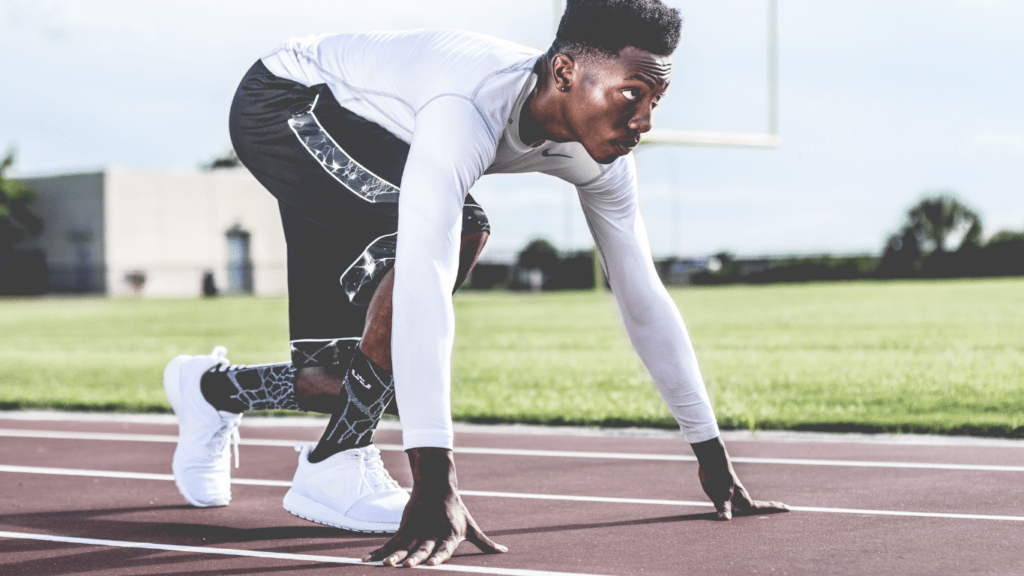Understanding the Mental Health Challenges in Athletes
Athletes face unique mental health challenges that often go unnoticed. These challenges can affect their performance and overall well-being.
The Stigma Around Mental Health in Sports
Mental health stigma remains prevalent in sports. Many athletes fear being perceived as weak if they discuss their struggles. This stigma discourages them from seeking help, exacerbating their issues.
An ESPN survey found that 46% of athletes avoid talking about mental health due to stigma.
Pressure to Perform and Its Impact
Performance pressure profoundly impacts athletes’ mental health. Constant scrutiny from coaches, fans, and media adds stress. For example, in the Olympics, the expectation to win can lead to anxiety and depression.
A 2019 study in the Journal of Sport and Exercise Psychology reported that 34% of elite athletes experience performance anxiety. This pressure affects focus, contributes to burnout, and can lead to long-term mental health problems.
Key Stress Factors for Athletes
Athletes face multiple stress factors that impact their mental well-being. From injuries to media scrutiny, these challenges require attention and effective coping mechanisms.
The Role of Injuries and Recovery
Injuries greatly affect athletes. Physical setbacks disrupt training, delaying progress and increasing frustration. Injuries lead to isolation during recovery phases, taking athletes away from their teams and routines.
For instance, long-term injuries often result in depression and anxiety, driven by uncertainty about future performance. Effective rehabilitation programs and mental health support play crucial roles in managing these periods.
Media Scrutiny and Public Expectations
Athletes often endure intense media scrutiny. Constant public attention places enormous pressure on performance and behavior. For example, high-profile athletes face critical commentary on social media, amplifying stress and affecting self-esteem.
Tied to this, public expectations demand consistent top performance, cultivating a fear of failure and contributing to mental strain. Creating boundaries with media and leveraging support from trusted advisors can help mitigate these pressures.
Through recognizing these stress factors and implementing comprehensive support systems, athletes can better manage their mental health.
Support Systems for Athlete Mental Health
Effective support systems can significantly enhance an athlete’s mental well-being, helping them manage the unique pressures they face.
Counseling and Psychological Services
- Professional counseling offers critical mental health support for athletes.
- Sports psychologists, who specialize in athlete mental health, provide coping strategies for stress and anxiety.
- Regular sessions help athletes develop resilience and maintain focus under pressure.
- According to the American Psychological Association, athletes who seek counseling often report improved performance and self-confidence.
Teams should integrate these services into their regular training to normalize mental health care.
Peer Support and Team Dynamics
Peer support within teams creates a network of understanding and encouragement. Teammates share similar experiences, making them an essential resource for emotional support.
Positive team dynamics foster a sense of belonging and reduce feelings of isolation. Peer-led initiatives and open discussions about mental health can break down stigmas.
Encouraging athletes to support one another strengthens the overall mental health culture within the team.
Case Studies: Athletes and Mental Health

Examining real-life examples helps illustrate the mental health journeys of athletes. These stories provide valuable insights into the effectiveness of different support systems.
Success Stories of Overcoming Mental Health Issues
Many athletes have successfully navigated mental health struggles with the right support. For example, Michael Phelps, the decorated swimmer, openly discussed his battles with depression and anxiety.
He credited his recovery to therapy and a strong support system, which included his coach and teammates.
Brandon Marshall, a former NFL player diagnosed with Borderline Personality Disorder, also benefited from professional counseling and now advocates for mental health awareness.
Analysis of Failed Support Interventions
Some athletes, unfortunately, didn’t receive adequate mental health support, leading to adverse outcomes. Junior Seau, another NFL legend, struggled with mental health issues but didn’t get effective support, which contributed to his tragic suicide.
Similarly, tennis player Jennifer Capriati faced severe depression and substance abuse issues when her career declined, highlighting gaps in the support systems available to her.
These cases underline the importance of timely and effective mental health interventions for athletes, particularly during transitions and after high-intensity competitive events.
Promoting Better Mental Health Practices in Sports
Athletes’ mental well-being is crucial for their performance and overall life success. Implementing structured support systems can significantly enhance their mental health.
Implementing Regular Mental Health Screenings
Regular mental health screenings detect issues early, offering timely intervention. Screenings should assess stress, anxiety, depression, and burnout among athletes.
Psychologists and counselors need to conduct these assessments quarterly. Institutions like the NCAA already mandate mental health screenings, making them a best practice standard. Regular screening helps identify those struggling quietly or reluctant to speak up.
This proactive approach can prevent severe mental health emergencies.
Educating Coaches and Management on Mental Health
Coaches and management play vital roles in athletes’ lives. Comprehensive training programs on mental health awareness are essential.
These programs should include:
- recognizing signs of distress
- providing initial support
- referring athletes to professionals
Effective education improves the overall environment, making it supportive and understanding. For instance, workshops and seminars focusing on mental health first aid can enhance sensitivity among staff.
Such training ensures athletes feel heard and supported, fostering a culture where mental health is prioritized.


